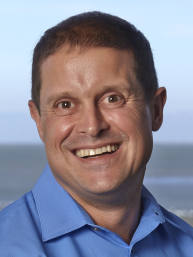A Lesson Learned From Big Pharma: Don't Be Afraid To Go Global

By Ed Miseta, Chief Editor, Clinical Leader

Kezar Life Sciences was founded in 2015 to fight immune-mediated and oncologic disorders. Christopher Kirk, company president, co-founder, and CSO, notes Kezar is pioneering small-molecule therapies that harness master regulators of cellular function to inhibit multiple drivers of disease via single, powerful targets. The company’s research in protein degradation and protein secretion will be used to impact difficult-to-treat diseases.
Kezar has two clinical candidates. KZR-616 is a selective inhibitor of the immunoproteasome which has demonstrated broad immunomodulatory activity and has the potential to be an effective treatment for patients with autoimmune disease. KZR-261 targets the activity of the Sec61 translocon and blocks many key proteins from entering the protein secretion pathway. This results in several validated oncology targets being blocked with a single small molecule.

“One of the things I learned was the importance of buy in from investigators,” he states. “It is important to have that buy in, not only in the U.S., but in Europe and the Asia-Pacific region as well. If you want to be a global player with your asset, you must understand the standard of care throughout the world.”
The rheumatic diseases Kezar is attempting to treat with KZR-616 have racial disparities across the world that create different outcomes and incidence rates of autoimmune disorders. Those considerations must come into play when thinking about trial design.
“That also taught me to not be afraid to go global as early as possible,” says Kirk. “Our Phase 2 MISSION study is enrolling patients in Central and South America, Australia, the U.S., and Eastern Europe. Our PRESIDIO trial has enrolled patients in the U.S. and Western Europe. Companies need to be willing to think globally and build an organization that can operate globally. That can be done with internal expertise or by finding the right contract partner.”
Build Internal Expertise
Kezar had to decide whether to build global expertise internally or outsource the capabilities to a global CRO. Kirk states the company did a combination of both, but stresses the importance of hiring the right talent. He wanted employees who would not be afraid to take the ball and run with it. That is especially important when getting sites up and running in different countries. He believes in giving employees the freedom and resources to do so. Those human resources gave Kezar the ability to go global with its very first trial.
“One of the benefits of being in the industry for many years is that you gain useful information,” he says. “I learned that Australia is a wonderful place to conduct Phase 1 healthy volunteer studies. Australia conducts high-quality clinical research, has high-quality laboratory research to support clinical trials, and a government that provides significant financial benefits to small companies that want to do research in the country.”
By conducting its first clinical trial outside the U.S., just one year after the company was formed, Kirk notes Kezar was able to eliminate the fear factor that many small companies have regarding the conduct of trials outside its borders. He notes the effort paid off, as the trial was well executed and generated pristine data. The FDA had no questions for the company when it was time to start trials in the U.S. with lupus and lupus nephritis patients. Although Kezar only had 15 employees at the time, the effort convinced everyone they could conduct global trials.
When it came time to start the MISSION and PRESIDIO trials, the company knew it could conduct them globally. In fact, conducting those trials globally was a necessity.
“The clinical trial space in oncology autoimmunity, and in rheumatic diseases in particular, is very competitive when it comes to finding patients,” notes Kirk. “In the U.S., patients are not as willing to participate in clinical trials as they are outside our borders. We knew our trials would have to be conducted globally. We had that mantra and believed we could do it right from the beginning.”
Communication Is Key
Kirk had a brief stint as an Amgen employee in 2013. During that time, he reviewed their small molecule oncology discovery programs that were close to entering clinical trials. Assets were at the stage where the company would decide if it should commit to the time and cost of a clinical trial and loop in the clinical development team.
“One of the things Amgen does very well is integrating the clinical development organization with the preclinical organization,” says Kirk. “They communicate well with each other very early on. Researchers working in the lab can inform the clinical team on insights they have to make the trial successful. For example, via patient selection.”
Kirk notes great communication between the discovery and clinical teams has always been music to his ears. Bench research he performed as a post-doc led to a Phase 1 study where he was able to help design the clinical trial. Since then, he has believed in the importance of integrating translational research with clinical trials. At Amgen, Kirk was able to see that process in action on a broad scale and could see how it was used to prioritize different programs within the organization.
“I admired how well they were able to use information to place their bets and resources,” says Kirk. “I felt that was a good model for Kezar to emulate as the company transitions into oncology. We are a data-driven company and one that puts science first. That's a belief I had before at smaller companies, but to see it in practice at a large organization was heartwarming. Everyone who starts a company in the biotech space wants to be the next Genentech or the next Amgen. For Kezar, the question is can we grow in a way that allows us to retain those beliefs while successfully developing the two assets we have in the clinic.”
